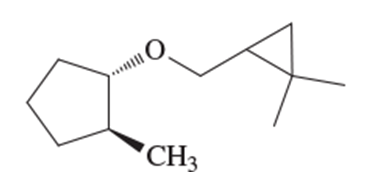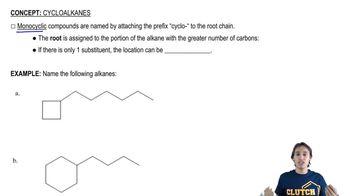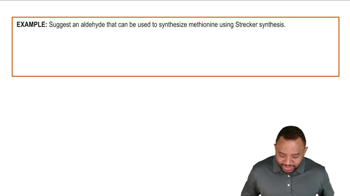The following pseudo-syntheses (guaranteed not to work) exemplify a common conceptual error.
(a) What is the conceptual error implicit in these syntheses?
(b) Propose syntheses that are more likely to succeed.

 Verified step by step guidance
Verified step by step guidance Verified video answer for a similar problem:
Verified video answer for a similar problem:



 0:10m
0:10mMaster Making Ethers - Intro with a bite sized video explanation from Johnny
Start learning